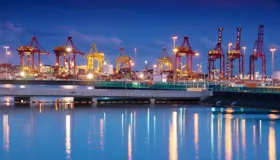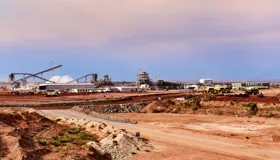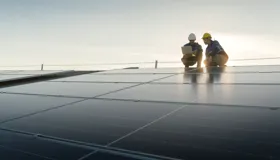
Renewable Metals has cheaper, cleaner battery recycling in its sights
Ground-breaking technology recovers valuable materials from lithium-ion battery waste.
WA recycling startup Renewable Metals is strengthening Australia’s circular economy by developing battery recycling plants with a ground-breaking technology that processes all formats of lithium-ion batteries using a cheaper cleaner method to recover valuable metals and critical minerals.
$3.6m
CEFC investment
1,500 tonnes
annual waste recycling capacity
30%
lower processing costs
To decarbonise quickly, the world needs cost-effective recycling solutions that maximise recovery for all types of lithium batteries (not just higher value ones with nickel and cobalt).Luan AtkinsonCEO, Renewable Metals
Our investment
The CEFC has invested $3.6 million in Renewable Metals. The investment is managed on behalf of the CEFC by Virescent Ventures.
The CEFC was an early-stage investor in Renewable Metals with an initial $2.5 million commitment to an $8 million investment round in 2023 and increased its investment during an $8.1million seed extension capital raise in 2024.
Renewable Metals, which was founded by a team of experienced metallurgists, has developed a highly differentiated, alkali-based recycling technology that offers high recovery of critical minerals using a more efficient and sustainable approach to processing end-of-life lithium-ion batteries.
The company developed a pilot plant in Perth, Western Australia, and is collaborating with the United Kingdom’s largest end-of-life recycler European Metal Recycling to build and operate a state-of-the-art demonstration plant in Birmingham with the capacity to process up to 1,500 tonnes of battery waste annually. The plant is partly funded by an Advanced Route to Market Demonstrator 3 (ARMD3) grant from the UK Department of Business and Trade (DBT) through the Advanced Propulsion Centre (APC).
our impact
Addressing a growing need for recycling
There is a growing global need for effective waste management strategies as demand for lithium-ion batteries rises, driven by the increasing electrification of transport and the renewable energy generation storage sector.
The CSIRO has estimated that the Australian battery recycling industry could help recover up to $3.1 billion of materials and metals and contribute to the global battery industry.1 In 2021, only 10 per cent of Australia’s lithium-ion battery waste was recycled, compared with 99 per cent of lead battery waste.
A more sustainable process
The Renewable Metals recycling technology can recycle the full range of lithium battery chemistries, including lithium ferro phosphate (LFP) which is contained in a growing share of batteries used in electric vehicles.
The process involves fewer steps to recover nickel, copper, cobalt, lithium, and manganese, and avoids creating the byproduct sodium sulfate. The process means Renewable Metals can recycle all formats of lithium-ion batteries, from large battery packs currently used in electric vehicles and home stationary storage batteries, as well as small consumer electronic batteries.
As well as recovering more of the critical minerals that support electrification, the innovative extraction method uses less chemicals and produces less waste, reducing capital and processing costs by up to 30 per cent compared to competitors.
Battery recycling that extracts valuable metals and materials is an important part of building Australia’s circular economy as demand for batteries grows. By developing end-of-life battery systems, Australia can participate across the battery value chain, from critical minerals extraction, refining, processing operation and maintenance and the eventual repurposing and recycling of batteries and components.Blair PritchardPartner, Virescent Ventures
1 CSIRO Australian landscape for lithium-ion battery recycling and reuse in 2020




